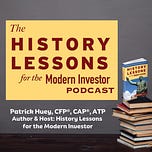On June 22, 1944, President Franklin D. Roosevelt signed into law the Servicemen’s Readjustment Act—better known as the GI Bill of Rights.
As World War II raged across Europe and the Pacific, the country faced a massive challenge: millions of American servicemen and women would soon return home after years of total war. Memories of the widespread poverty and social unrest that followed World War I were still fresh, and policymakers knew that reintegrating veterans into civilian life would require more than parades and gratitude. What emerged was a piece of legislation that radically reimagined the nation’s promise to those who served. The GI Bill offered a suite of benefits that had never before been available to ordinary Americans—tuition and living stipends for college or vocational training, low-interest loans for homes and businesses, and a safety net of unemployment support. The scale and vision were unprecedented. In the years that followed, the GI Bill opened college doors to more than two million veterans, drove a postwar homebuilding boom, and effectively launched the modern American middle class. The law transformed not just individual lives, but entire communities—fueling suburban growth, expanding the higher education system, and laying the foundation for decades of economic mobility and innovation. However, the GI Bill’s success was not without its shortcomings. Discriminatory practices, particularly in the South, meant Black veterans were often denied the full benefits, barred from white colleges, and steered away from federally-backed home loans by redlining and Jim Crow laws. While the GI Bill expanded opportunity for millions, it also exposed the work left undone to make prosperity truly inclusive. Still, the long-term impact is hard to overstate: the GI Bill is widely credited with catalyzing the Golden Age of American growth, filling classrooms, neighborhoods, and businesses with new talent and energy, and setting a model for how bold investment in human capital can shape a nation’s destiny.
Here are three lessons for the Modern Investors, courtesy of the GI Bill.
🎓 Investing in Education Pays Compounding Returns
The GI Bill made higher education accessible to entire generations, multiplying wages, innovation, and entrepreneurship over decades. For modern investors, the lesson is clear: investments in your own knowledge, skills, and adaptability are assets that yield exponential long-term growth. As Ben Franklin once noted, “An investment in knowledge pays the best interest.” Whether it’s formal education, learning new technologies, or staying up-to-date on financial trends, prioritizing lifelong learning builds a durable foundation for future wealth and resilience.
🎓 Broad Access Creates Broad Prosperity
The postwar boom didn’t happen by luck—it was the result of expanding opportunity across the broadest swath of Americans in history. In investing, think inclusively: diversified portfolios—across sectors, geographies, and asset types—position you to benefit from a wide range of economic currents. Don’t concentrate your bets too narrowly; broad participation reduces risk and maximizes your exposure to new sources of growth.
🎓 Plan for Transitions—Not Just the Status Quo
The GI Bill recognized that millions of families were re-entering civilian life and needed help navigating a major transition. In markets and life, big changes—career moves, retirement, inheritance, or economic shocks—require their own planning. Don’t just optimize for “normal times”; build flexibility into your portfolio and financial life so you’re ready when circumstances shift, whether by choice or chance.
A Final Thought
The GI Bill was a leap of faith in the American experiment—a powerful bet on education and the long-term benefits of investing in people. Its story is a testament to how well-designed policies, or in our case, personal strategies, can foster intergenerational abundance when they combine vision, opportunity, and discipline.
This episode is sponsored by Victory Independent Planning. Ready to take the stress out of your retirement? At Victory Independent Planning, we put you on the right trajectory with our exclusive VIP Retirement Glidepath™️!
Schedule an assessment now: https://freebusy.io/victoryindependentplanning-VIP-Booking/phone-consultation
🎯Patrick Huey is a small business owner and the author of three books on history and finance as well as the highly-rated recently-released fictional work Hell: A Novel. As owner of Victory Independent Planning, LLC, Patrick works with families and non-profit organizations. He is a CERTIFIED FINANCIAL PLANNER™ professional, Chartered Advisor in Philanthropy® and an Accredited Tax Preparer. He earned a Bachelor’s degree in History from the University of Pittsburgh, and a Master of Business Administration from Arizona State University. Patrick previously served as a Naval Flight Officer from 1996-2005, earning the Strike Fighter Air Medal during combat operations and two Navy Achievement Medals. 👉🏻 Reach him at 877-234-8957 or schedule a time to talk using this link:
https://freebusy.io/victoryindependentplanning-VIP-Booking/phone-consultation
#WWII #HistoryLessons #Planning #LearnFromHistory
Follow along for more insights, strategies, and reflections.





